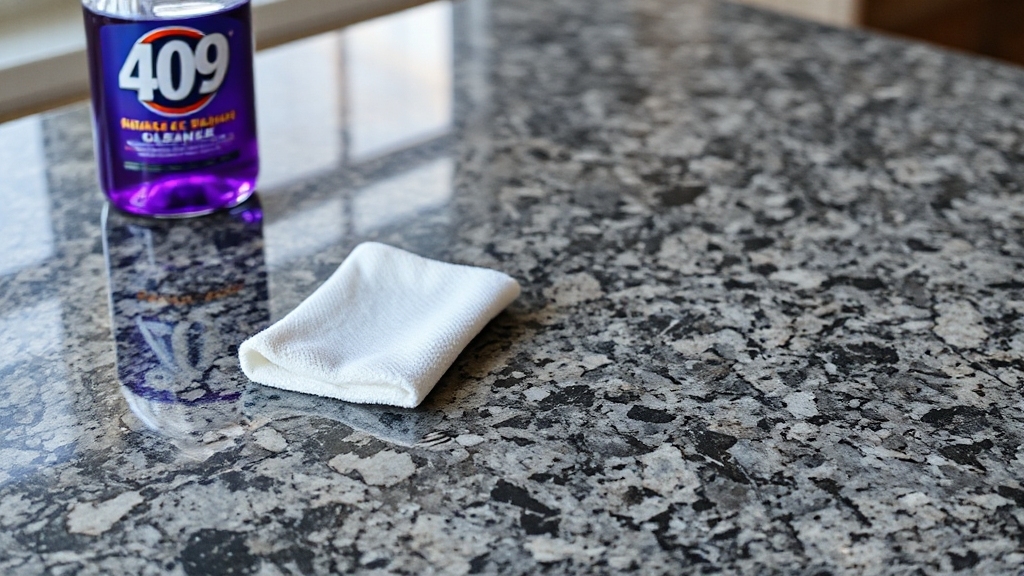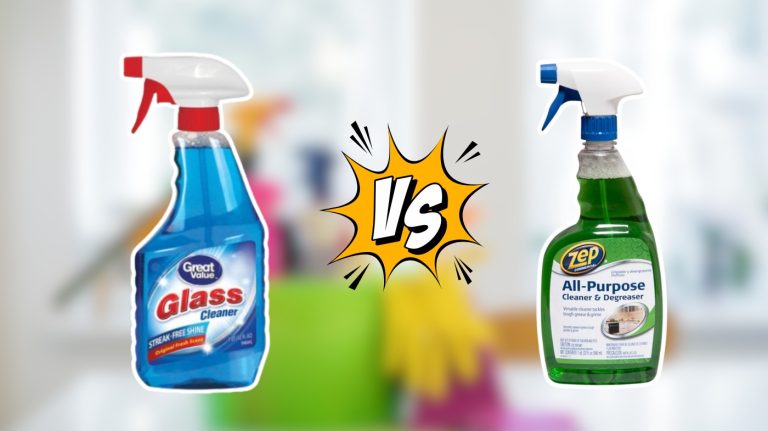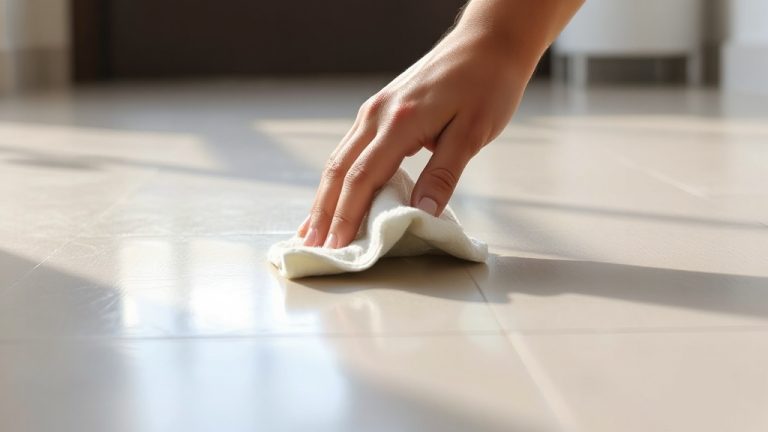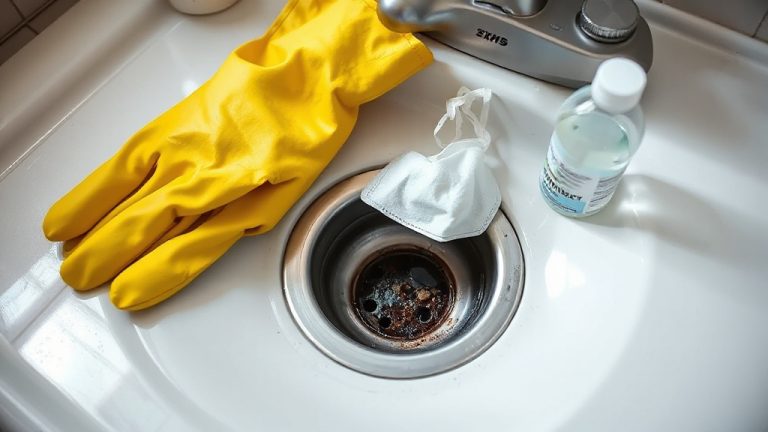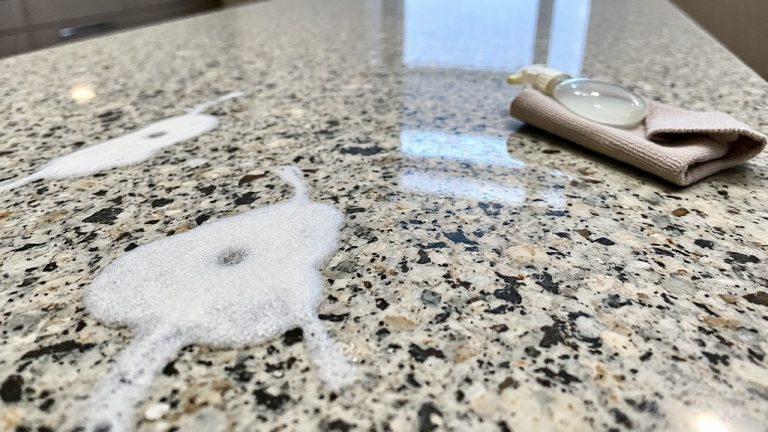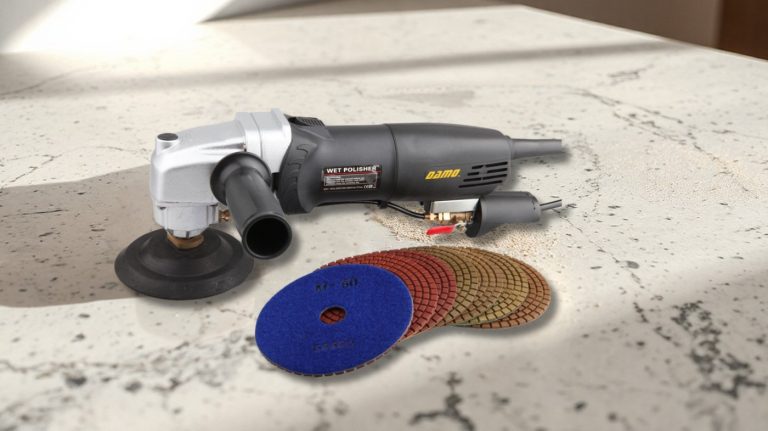Can You Use 409 on Granite? Know This Before You Try
You can use Formula 409 on granite only if it’s the version specifically made for natural stone, like their Stone & Steel Cleaner.
Regular 409 products contain harsh chemicals that can strip the granite’s sealant, dull its shine, and cause surface damage.
To protect your granite, avoid general cleaners and opt for those with neutral pH and gentle ingredients. If you want to keep your granite safe while cleaning effectively, it helps to understand proper product choices and techniques ahead.
Key Takeaways
- Regular Formula 409 can damage granite by stripping its protective sealant and increasing surface porosity.
- Harsh ingredients like ammonia or bleach in 409 may degrade granite’s finish and reduce stain resistance.
- Use only Formula 409 Natural Stone & Steel Cleaner specifically formulated for granite surfaces.
- Always perform a spot test on granite before applying any cleaner to ensure no surface damage occurs.
- For best granite care, prefer specialized stone cleaners or mild soap with water over multi-surface 409 sprays.
Formula 409 and Its Variants
Although many cleaning products share similar purposes, Formula 409 stands out due to its specific chemical composition and versatile variants tailored for different cleaning needs.
It contains alkyl (C12-16) dimethylbenzylammonium chloride, a potent quaternary ammonium compound at 0.1-0.4%, providing strong antimicrobial action. Lauramine oxide at 0.5-1.5% functions as a surfactant and antimicrobial agent, boosting grease emulsification and dirt removal.
Small amounts of monoethanolamine serve as a solvent but may irritate skin. Water forms the solvent base, while colorants and fragrances vary by variant. You’ll find options emphasizing antibacterial strength or scent differences without altering core chemistry.
The formula’s design targets grease, grime, and bacteria on multiple surfaces, delivered mainly in spray form for straightforward application.
It is marketed primarily in the US and Canada and is registered with the EPA under EPA Registration No.
Safety of Using 409 on Granite Surfaces
When you clean granite surfaces, you need to avoid using Formula 409 because its harsh ingredients can damage the stone’s protective sealant.
The original Formula 409 contains chemicals that strip away this sealant, leaving granite exposed and vulnerable to stains and dullness.
Over time, this exposure increases granite’s porosity, accelerating surface degradation and reducing its natural shine.
Additionally, Formula 409 often includes bleach or ammonia, which further harm granite’s integrity. Since 409 doesn’t effectively disinfect granite either, using it compromises both safety and cleanliness.
Instead, you should opt for pH-neutral, specialized granite cleaners designed to maintain the stone’s durability and appearance.
Products like Formula 409 are typically available in spray form, which is convenient but not suitable for granite.
Features of Formula 409 Stone and Steel Cleaner
You’ll appreciate that Formula 409 Stone and Steel Cleaner uses a gentle, pH-balanced formula designed specifically to protect delicate surfaces like granite while effectively cutting grease. Below are some key features that make it a reliable choice for cleaning and maintaining your natural stone and stainless steel surfaces.
Gentle Cleaning Formula
Since maintaining the integrity of delicate surfaces is essential, Formula 409 Stone and Steel Cleaner employs a gentle cleaning formula that balances effective grease removal with surface safety.
It uses water as its primary solvent, combined with monoethanolamine (MEA) to break down oils and residues efficiently without harsh acids or abrasives. This non-abrasive composition guarantees you can clean granite, marble, and limestone without risking etching or dulling.
The formula leaves surfaces streak-free and fresh-smelling, thanks to carefully balanced fragrances. Developed by The Clorox Company, it meets strict safety and efficacy standards, minimizing health risks and environmental impact. It is available in a 32 Fluid Ounces spray bottle, making it convenient for regular household use.
When you use it with a spray and soft cloth, you maintain your stone’s finish while removing grease and household grime effectively.
Multi-Surface Versatility
Beyond its gentle cleaning formula, Formula 409 Stone and Steel Cleaner stands out for its multi-surface versatility. You can confidently use it on various natural stone surfaces, including granite and marble, as well as stainless steel.
The product effectively removes grease and grime without leaving streaks or residue, preserving the natural appearance of your surfaces. Its pump spray form makes application effortless, allowing you to clean quickly without special surface preparation. The product is made in the United States, ensuring quality standards.
The formula dries fast and is gentle enough to avoid damage to delicate materials. Manufactured by The Clorox Company, this cleaner combines efficiency with safety, backed by accessible safety data sheets.
Proper Cleaning Techniques for Granite With 409
When cleaning granite surfaces, choosing the right product and method is vital to preserving their natural beauty and durability. Use only Formula 409 Natural Stone & Steel Cleaner, specifically designed for granite. Start by clearing all items and debris from the surface.
Spray the cleaner evenly and wipe with a soft cloth—avoid paper towels, which can scratch. For stubborn stains, gently scrub with a soft-bristled brush, then wipe clean. It is important to use only pH-balanced cleaners to avoid etching or damage to the granite.
Always dry the granite thoroughly using a clean towel to prevent water spots. Regularly clean granite daily after meals with a microfiber cloth and avoid excess water to prevent mineral buildup.
Formula 409® maintains the appearance of granite counters by keeping surfaces grease-free and visually appealing, which helps prevent buildup of grime.
Tips for Maintaining Granite Countertops
Since granite countertops combine durability with elegance, maintaining their appearance requires consistent and careful attention.
Clean spills immediately, especially acidic ones, using a soft cloth and mild dish soap with hot water to prevent stains and scratches. Avoid harsh chemicals like bleach, ammonia, or vinegar that can damage the surface. Regular maintenance routines are essential for longevity and help prevent extensive damage over time.
Weekly, clear all items and use specialized granite cleaners to thoroughly wipe down edges and surfaces, removing accumulated grease and dirt while enhancing shine.
Monthly, apply a topical polish sparingly to boost luster and inspect for stains, addressing any promptly.
Perform yearly absorption tests to determine if resealing is necessary, and consult professionals when unsure. For stains, gently apply baking soda or hydrogen peroxide pastes repeatedly, seeking expert help if stubborn.
Precautions and Testing Before Using Any Cleaner
Before applying any cleaner to your granite, always perform a spot test on a hidden area to verify it won’t cause damage. Below are some important precautions and steps to follow before using any cleaner on your granite to ensure its safety and long-term durability.
Spot Test Importance
When you plan to clean granite surfaces, conducting a spot test is essential to protect your investment and verify the cleaner’s safety. Spot testing prevents damage by identifying harmful reactions before applying any cleaner broadly.
Using a budget-friendly option like Formula 409 Stone and Steel Cleaner requires extra caution due to its multi-surface formula.
It guarantees the cleaner is compatible with your granite, preserving its appearance and integrity. Always test on a discreet area, apply the cleaner sparingly, and observe for any discoloration or etching. This method also provides peace of mind, confirming the cleaner’s suitability.
Key spot test steps to remember:
- Select a hidden section of the granite for testing
- Use a small amount of cleaner and wait several minutes
- Look carefully for surface changes or damage
- Stop use immediately if adverse reactions occur and consider alternatives
Avoid Harsh Chemicals
Although granite is a durable natural stone, you must avoid harsh chemicals that can quickly degrade its surface.
Cleaners containing bleach, ammonia, acids, or strong alkalis—like Formula 409—damage granite by breaking down its sealant and etching the stone, causing irreversible dull spots. Even a single use can harm polished finishes.
Stay clear of glass cleaners, traditional bathroom sprays, and furniture polishes, which leave residues or cause patchy dullness. Instead, choose pH-neutral or specialty granite cleaners designed to preserve stone integrity. Using a pH neutral cleanser helps prevent the etching process that removes weaker stone particles.
Always perform a patch test on a hidden area before widespread application. Avoid mixing cleaners and abrasive scrubbing that exacerbate damage. Rinse and dry the surface promptly after cleaning to maintain granite’s appearance and longevity.
Follow Manufacturer Guidelines
Steering clear of harsh chemicals is only one part of protecting your granite surfaces; following manufacturer guidelines guarantees you use cleaners safely and effectively.
When using Formula 409 on granite, adhere strictly to label instructions and test products on a small, hidden area first to avoid damage.
Always prepare the surface by removing debris and verify good ventilation during cleaning to protect yourself. The manufacturer, Clorox Company, provides customer support at 800-227-1860 for any product-related questions or concerns.
Key points to remember:
- Use Formula 409 Natural Stone & Steel Cleaner, designed for granite with a neutral pH and non-abrasive formula.
- Spray on surface and wipe with a soft cloth to prevent scratches.
- Test on an inconspicuous area, waiting for it to dry before inspection.
- Consult the Safety Data Sheet and wear appropriate personal protective equipment.
Frequently Asked Questions
Can 409 Stone and Steel Cleaner Be Used on Granite Backsplash?
You can confidently use Formula 409 Stone and Steel Cleaner on your granite backsplash. It’s pH-balanced, non-abrasive, and free from harmful ammonia, so it won’t damage or dull your stone.
Just spray it lightly or apply with a soft cloth, then wipe gently with microfiber. Rinse and dry thoroughly to maintain that streak-free shine while preserving your granite’s natural beauty and longevity.
Is 409 Safe for Granite Kitchen Sinks?
Imagine you’ve just installed a granite kitchen sink and want to keep it spotless. You can safely use Formula 409 Natural Stone & Steel Cleaner on it, as it’s formulated to clean granite without damage.
Just avoid abrasive pads and harsh chemicals. Using this cleaner with a soft cloth helps maintain the sink’s finish and prevents scratches, ensuring your granite stays beautiful and durable over time.
How Often Should You Seal Granite After Cleaning With 409?
You should seal granite countertops every 1 to 5 years, depending on usage and exposure. After cleaning, always inspect the seal regularly to guarantee it remains intact. If you notice water no longer beads on the surface, it’s time to reseal.
Consistently using approved granite cleaners and avoiding harsh chemicals will help maintain the seal longer, protecting your granite’s appearance and durability effectively.
Does 409 Stone and Steel Cleaner Remove Granite Stains?
Formula 409 Stone and Steel Cleaner doesn’t remove deep granite stains effectively; it’s designed for routine cleaning and maintenance.
You can rely on it to keep your granite surface clean and streak-free, but stubborn or set-in stains require specialized stain removers or methods like a poultice.
Regular use of 409 helps prevent stains by maintaining cleanliness, but for actual stain removal, you’ll need products specifically targeted for granite stain treatment.
Can 409 Be Mixed With Other Granite Cleaning Products?
You might think mixing cleaners boosts cleaning power, but you shouldn’t mix 409 with other granite products.
Combining them risks harmful chemical reactions that can etch or discolor your granite. Stick to a single, pH-balanced cleaner like Formula 409 Natural Stone & Steel Cleaner, which is safe and effective.
Always test any new cleaner on a small area first, and follow manufacturer guidelines for the best granite care.
Safe Granite Cleaning Starts with the Right 409
You might worry that using Formula 409 on granite could damage your countertop, but when applied correctly and sparingly, it’s safe for routine cleaning. Just avoid abrasive scrubbing and never let it sit too long.
While specialized granite cleaners offer tailored protection, 409’s stone and steel variant provides an effective alternative for quick clean-ups. Always test a small area first to guarantee your granite stays pristine and well-maintained over time.

